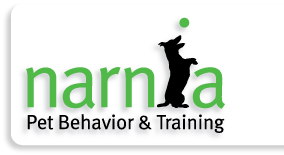

Defusing Canine AggressionPresented by: Pam Dennison |
||||||||||||
|
Saturday: Camp R.E.W.A.R.D: Classic Solutions for Aggressive / Reactive DogsCamp R.E.W.A.R.D.(Realizing Excellence With Attention, Redirection & Desensitization) for Aggressive / Reactive DogsHow to manage, train and start the desensitization process with the aggressive dog in a positive, pro-active and effective manner. Foundation behaviors and enrichment programs will also be discussed and demonstrated (video). Summary of PresentationOur job as positive trainers is to help identify problems before they start, and teach specific exercises in our pet classes designed to eliminate the need for aggressive dog classes. The aggression we see is often due to a lack of simple foundation behaviors or use of punitive methods in training. Humans can create aggression by punishing dogs, using a leash incorrectly or using electric devises to stop unwanted behaviors. Ten Foundation BehaviorsCamp R.E.W.A.R.D. addresses aggression using counterconditioning and systematic desensitization, along with positive training for a base core of ten foundation behaviors. We add additional foundation behaviors for the more advanced dog and handler, Enrichment training is also utilized: e.g. competition obedience, agility and Rally skills, Freestyle, free-shaping, swimming- anything to keep the dog busy and not aggressing. Additional Components:
Setting Up Your Own Aggressive Dog ClassesThe need for aggressive dog classes is on the rise. It is a good testament to our society that more and more people want to help their dogs instead of euthanizing them. Many trainers may benefit from added knowledge of how to run these types of classes. The risk for a bite incident or further stress to the dog may be high if the class is handled inappropriately. Specific protocols and criteria on prerequisites for joining a class and management of a class will be addressed and demonstrated. How to judge which dogs are and are not appropriate for a group class will be discussed. Sunday - Creative Solutions: Using Free Shaping to speed acceptance of non-aggressive behaviorConcept:We teach aggressive dogs core/foundation behaviors before working on systematic desensitization. But there is another aspect of a solid foundation--the dog's "inner" foundation,--self-assurance, ability to cope or lack thereof, and motivation to act in certain ways. How do we tap into that canine "inner foundation?" Free shaping seems to help. It teaches the handler how to break behaviors into very small approximations, capture them with precise clicking and food delivery and to be quiet allowing the dog to think. The dog learns that it's okay to problem solve and offer behaviors (for which he's rewarded), and that he can influence his environment. Seeing their aggressive dog learn to solve mental puzzles is exciting for the handler. They often start to think, "Maybe my dog really can learn to be more like other "normal" dogs." They become immersed in the free-shaping process and extremely tuned into their dog. The growing connection between dog and handler generates enthusiasm and dedication to stick with the long haul of systematic desensitization. Basic Technique of "Free Shaping"Click and reward the smallest step in the direction of a desired behavior. Then wait for the offer of the next tiny increment in that direction. Reinforce each step totally without luring or prompting. (Video Demo) Free Shaping Exercises for Aggressive Dog & Handler Alone (Video Demos.)Dogs appear to become totally engaged in the learning process with free-shaping. Once they grasp the concept, they start to pick up all new behaviors faster and faster. Even if they are not working on free-shaping for a particular session, the dogs give their owners much more attention then they did before learning how to free-shape. Free Shaping Exercises for Aggressive Dog & HandlerFree-shaping in the presence of other dogs that are also busy free shaping creates a climate of concentrated attention to their owner, and the dogs are not reacting to provoking stimuli. End GameIn free-shaping a dog is more likely to problem solve by trying new and different things, which can lead to learning alternate and acceptable behaviors faster. Coupled with the desensitization process, they will then learn to react in a more appropriate, non-aggressive, manner for our human society. |

|
|||||||||||









